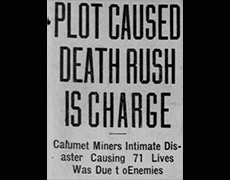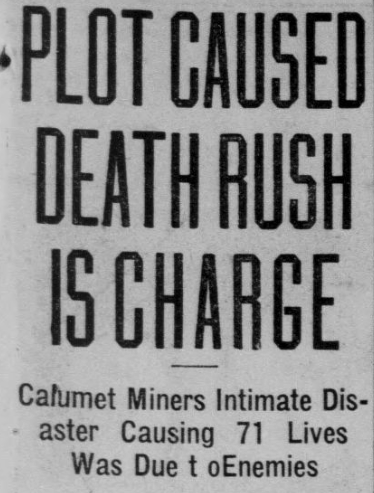
The Italian Hall Disaster, also known as the 1913 Massacre of striking mine workers, was a tragedy that took place on December 24, 1913, in Calumet, Michigan.
On that day, hundreds of striking mine workers and their families gathered at the Italian Hall for a Christmas party. However, what was meant to be a joyful occasion turned into a tragedy when someone shouted “fire” in the crowded hall (many believe that this was done intentionally to cause the panic), causing a stampede that resulted in the deaths of 73 people, most of them children.

The Italian Hall Disaster was a result of the tensions between the mine workers and their employers, who were determined to break the strike by any means necessary.
The workers, who were demanding better wages and working conditions, had gone on strike in July 1913. The situation escalated as the employers brought in strikebreakers and the Michigan National Guard was called in to maintain order.

The disaster at the Italian Hall was a turning point in the strike, as it galvanized public opinion against the mine owners and the Michigan National Guard. The tragedy also led to reforms in workplace safety and increased public support for organized labor.

The memory of the Italian Hall Disaster has been kept alive through the efforts of labor unions, historical societies, and community organizations.
A memorial plaque was placed at the site of the disaster, and an annual commemoration ceremony is held to remember the victims and their families.

